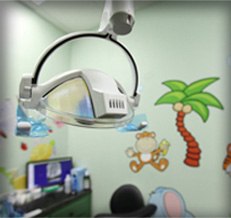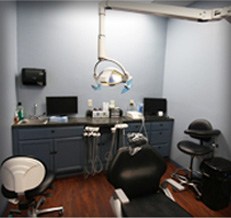
In the last couple of decades, dentures have transformed from obvious, obtrusive prosthetic teeth to a life-like, long-lasting teeth replacement solution. Whether you have partials that fill in the gaps of a few missing teeth or full dentures that replace an entire arch, advancements in dentistry allow them to provide you with maximum stability and minimal movement – if they fit properly. However, if they become loose, then it is important to know that more than just your comfort is at stake. Read on for the potentially dangerous repercussions of ill-fitting dentures and how your dentist can help.
What Causes Poor-Fitting Dentures?
The shape of your dentures can warp from extended exposure to hot water or a fracture that has compromised its structure. However, most often, dentures become ill-fitting due to the change in your facial structure. Once you lose a permanent tooth, your jawbone stops being stimulated in that area. This signals to your body that the minerals could be used elsewhere, resulting in bone loss. Over time, this process can cause your once snug dentures to become loose.
5 Serious Health Consequences of Ill-Fitting Dentures
The immediate effects of loose dentures range from unusual noises while you chew to difficulty enunciating words properly. While these consequences can be embarrassing, they are nothing compared to the long-term health concerns, such as:
- Irritated and inflamed gums
- Blister development
- Chronic ear pain and headaches
- Difficulty chewing (which can result in indigestion and nutritional deficiencies)
- An uneven bite that leads to the unnatural pooling of saliva on the sides of the mouth
How Your Dentist Can Help
Whether you have been struggling with tooth loss for years or it’s a relatively new battle, your dentist is your biggest ally when it comes to your oral health. Not only can they ensure any remaining teeth are in good condition, but they can also adjust your dentures as needed to make sure they fit snugly. Plus, they can help you care for them properly to keep them in pristine condition throughout the years, which may save you exponentially on replacements. So, when you first begin to experience movement when you talk, smile, or chew, contact your dental team!
About the Author
Dr. Racha W. Kadamani completed her dental doctorate at Loma Linda University School of Dentistry and has continued to stay abreast of the latest in dentistry through an active membership with multiple professional organizations, like the American Dental Association. Today, she has over 18 years of hands-on experience under her belt, and in that time, she has helped countless patients achieve full, healthy, beautiful smiles. So, if your dentures need to be adjusted or you are interested in exploring this tooth replacement option, visit her website.







